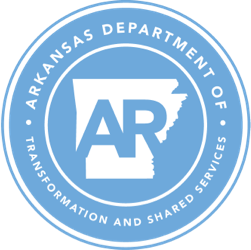Job Class Search
Job Details
VETERINARY SPECIALIST
The Veterinary Specialist is responsible for inspecting, diagnosing, and/or reporting animal disease and/or death. This position is governed by state and federal laws and agency policy.
Class Code:
L106C
Job Grade:
MP04
Special Job Requirements:
A vaccination against rabies virus is required. Lifting, pulling, and pushing heavy objects is required. In-state travel may be required.
Typical Functions:
Toxicology Specialty: Generates, analyzes and interprets test results to facilitate the diagnosis of animal disease caused by infectious agents and/or chemical imbalances, and to determine cause of death from exposure to natural or synthetic organic and inorganic chemicals.
Provides administrative direction to professional staff in the Toxicology section by recommending for hire, assigning and reviewing work, training employees through formal and informal lectures and demonstrations, and evaluating the performance of incumbents.
Initiates purchase of capital equipment by writing and reviewing vendor quotations and submitting purchase orders; maintains laboratory instrumentation and serves as contact point for manufacturer service calls.
Develops new methods of chemical analysis. Authors and ensures adherence to safety and quality assurance policies. Formulates laboratory-wide policies governing chemical stability.
Disseminates toxic substance information to veterinarians, federal and state agencies, and the general public via reports, lectures, website, and published materials.
Conducts drug testing on animals competing for awards at the annual Arkansas State Fair.
Coordinates work involving multiple laboratory sections. Attends lectures, management meetings, conferences, and continuing education courses.
Researches diseases to which animals could be susceptible.
Virology Specialty: Analyzes and interprets test results to facilitate the diagnosis of animal disease caused by viruses, bacteria, or fungus.
Oversees the daily operation of the Virology, Bacteriology, and Serology sections of the laboratory, including supervision and training of employees, purchase and maintenance of equipment and supplies, method development, and adherence to safety and quality assurance policies.
Disseminates animal disease information to veterinarians and the public via reports, lectures, website, and published materials.
Pathology Specialty: Performs gross and histopathological examination of all species of animals to diagnose disease. Analyzes and interprets test results to diagnose animal disease.
Oversees the daily operation of the Histology and Necropsy sections of the lab, including supervision and training of employees, purchase and maintenance of equipment and supplies, method development, and adherence to safety and quality assurance policies.
Disseminates animal disease information to veterinarians and the public via reports, lectures, website, and published materials.
Poultry Disease Specialty: Advises the poultry industry regarding the disease status of flocks and assists in the treatment of flocks. Performs poultry necropsies to determine the cause of sickness/mortality and initiates the proper tests necessary to make a diagnosis.
Plans and implements programs related to the detection, prevention, and eradication of poultry diseases. Prepares various forms, correspondence, and reports, as requested.
Monitors poultry disease trends in the USA and abroad. Participates in the emergency preparation of the state for the control and eradication of highly infectious poultry diseases.
Interprets and verifies laboratory test results for the poultry industry. Advises poultry companies’ personnel on the proper medication or the corrective measures needed to eliminate poultry disease problems.
Oversees the daily operation of the section, including supervision and training of employees, purchase and maintenance of equipment and supplies, method development, and adherence to safety and quality assurance policies.
Participates in, advises, and conducts educational poultry disease seminars for the poultry industry.
Performs on-site inspection of poultry flocks.
Provides administrative direction to the National Poultry Improvement Plan (NPIP) staff by recommending for hire, assigning and reviewing work, training employees, and evaluating the performance of employees.
Knowledge, Abilities, and Skills:
Toxicology Specialty:
Knowledge of the principles and practices of chemistry and chemical analysis.
Knowledge of laws, rules, regulations, and specialized procedures governing the work of
chemical laboratories.
Knowledge of veterinary toxicology.
Knowledge of state purchasing and human resource laws, rules and procedures. Knowledge of supervisory principles and practices.
Knowledge of basic computer skills including word processing, spreadsheets, and
PowerPoint.
Ability to operate standard and specialized laboratory equipment.
Ability to write descriptive results of technical analysis.
Ability to prepare, disseminate and implement lab, safety and quality guidelines and procedures.
Ability to plan, organize and oversee the work of subordinates.
Ability to appear as expert witness in court.
Ability to communicate orally and in writing.
Virology Specialty:
Knowledge of veterinary virology, molecular diagnostics, bacteriology, and serology. Knowledge of veterinary toxicology, clinical pathology, and pathology.
Knowledge of state purchasing and human resource laws, rules and procedures. Knowledge of supervisory principles and practices.
Knowledge of basic computer skills including word processing, spreadsheets, and
PowerPoint.
Ability to analyze and interpret scientific and technical journals.
Ability to write reports, correspondence, and scientific publications.
Ability to plan, organize and oversee the work of subordinates.
Ability to speak effectively before both internal and external groups.
Pathology Specialty:
Knowledge of veterinary pathology.
Knowledge of veterinary toxicology, virology, serology, clinical pathology, and bacteriology. Knowledge of state purchasing and human resource laws, rules and procedures.
Knowledge of supervisory principles and practices.
Knowledge of basic computer skills including word processing, spreadsheets, and
PowerPoint.
Ability to analyze and interpret scientific and technical journals.
Ability to write reports, correspondence, and scientific publications.
Ability to plan, organize and oversee the work of subordinates.
Ability to speak effectively before both internal and external groups.
Poultry Disease Specialty:
Knowledge of state and federal laws, rules, regulations, policies, and procedures governing
avian disease eradication.
Knowledge of general veterinary techniques, practices, and procedures.
Knowledge of organizational management, human resources management, and public
administration.
Knowledge of basic computer skills including word processing, spreadsheets, and
PowerPoint.
Ability to conduct laboratory diagnostic work.
Ability to analyze data, plan outcomes, and determine solutions.
Ability to interpret and apply laws, rules, regulations, policies, and procedures governing
poultry disease eradication and develop and recommend revisions.
Ability to prepare and provide information to agency management, poultry industry
representatives, the US Department of Agriculture, and the general public.
Ability to organize and present clear and concise oral and written reports of findings and
recommendations.
Ability to plan, organize and oversee the work of subordinates.
Ability to establish and maintain working relationships with others.
Minimum Qualifications:
Toxicology Specialty: The formal education equivalent of a doctorate degree in chemistry or veterinary medicine (DVM); plus one year of experience in a chemical laboratory, including one year in a leadership capacity. Virology Specialty: The formal education equivalent of a doctorate degree of veterinary medicine (DVM); plus two years of advanced training in the specialty of veterinary microbial diseases, including one year in a leadership capacity. Pathology Specialty: The formal education equivalent of a doctorate degree of veterinary medicine (DVM); plus two years of advanced training in the specialty of pathology, including one year in a leadership capacity. Poultry Disease Specialty: The formal education equivalent of a master’s degree in avian pathology; plus four years of experience in avian diagnostics, including two years in a supervisory capacity. Additional requirements determined by the agency for recruiting purposes require review and approval by the Office of Personnel Management. OTHER JOB RELATED EDUCATION AND/OR EXPERIENCE MAY BE SUBSTITUTED FOR ALL OR PART OF THESE BASIC REQUIREMENTS, EXCEPT FOR CERTIFICATION OR LICENSURE REQUIREMENTS, UPON APPROVAL OF THE QUALIFICATIONS REVIEW COMMITTEE.
Required Certificates:
Candidates with a doctorate degree in veterinary medicine (DVM) must be licensed as a Veterinarian by the Veterinary Medical Licensing Board in accordance with ACA 17-101-301-303 et al. All specialties must possess a valid Arkansas driver’s license.
Exempt:
E

